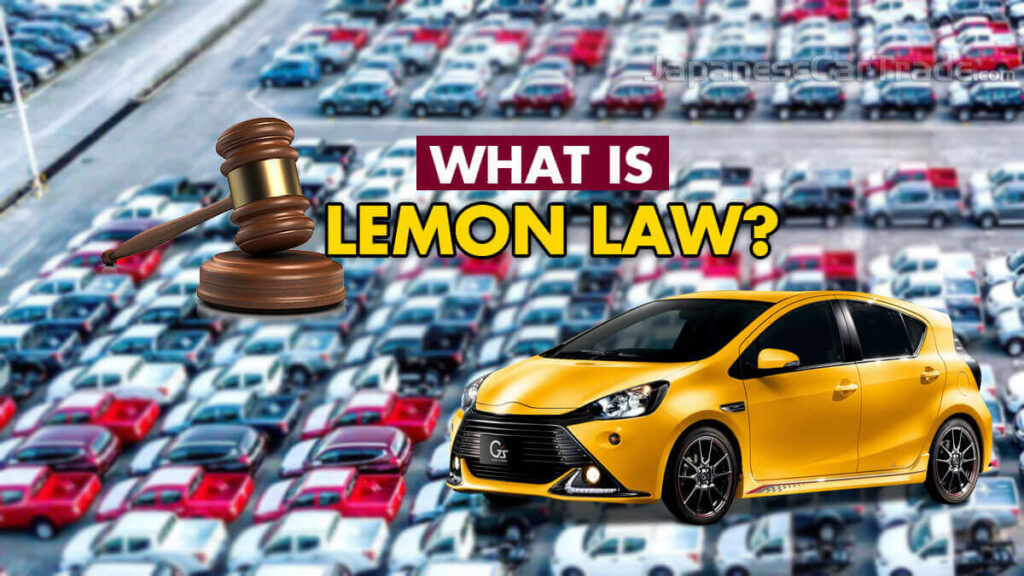Every state has its Lemon Law for cars, which refers to the Legal framework that protects consumers from defective goods. The Purpose of a lemon law is to protect consumers by ensuring that they are provided with a remedy when products they have purchased do not meet their expectations. Under the lemon law, a manufacturer must Notify the consumer of any defects and allow them a reasonable amount of time to remedy the situation. If the consumer does not receive satisfaction within this time, they may be able to file a lawsuit against the manufacturer.
Lemon law vary significantly in terms of how much time consumers give to fix their product and how severe the consequences are if they do not comply. In general, however, there are three main elements that all lemon laws share: notification of defects, a fixed deadline for taking corrective action, and potential remedies if those deadlines are not met.
The Steps to Take if You Think You Have a Lemon Car:
Here are the steps to take if you think you have a Lemon Car:
Get a copy of the car’s Carfax report: This document will list any prior accidents or repairs and can help determine whether the car is a lemon.
Bring the car in for a diagnostic check: A Licensed mechanic will be able to identify any issues with the vehicle and suggest solutions.
If there are significant problems with the car, consider negotiating a settlement with the seller or dealership before taking it to court. This may mean fixing the problem or paying for it to be fixed.
If you decide to take your car to court, be prepared to spend a lot of money on attorney fees and other costs associated with litigation. However, if you win, you can get your car repaired or replaced free of charge.
The Evidence Needed to Prove Your Car is a Lemon:
The Evidence Needed to Prove Your Car is a Lemon. This means that there are Certain things that you need to do to prove that your car is a lemon. Some of these things include taking it to an authorized mechanic, having the Lemon law for car inspected by a certified mechanic, and having the car’s diagnostic data reviewed by a qualified technician.
Suppose you can provide evidence that your car is not working correctly or has significant issues. In that case, the Manufacturer may be willing to reimburse you for any repairs or replacements made. In addition, if you have proof that your car has been in an accident, the Manufacturer may be willing to refund or replace your vehicle. It is essential to keep track of your car’s repairs and replacements so that you can prove if it is a lemon.
What are the Eligibility Requirements for Lemon Law protection?
Lemon Law protection is a Legal remedy for consumers who have experienced defective or unsatisfactory products. To qualify for lemon law protection, the product must fall into one of the following categories: cars, appliances, electronics, or furniture.
To Receive Lemon Law protection, you must first file a complaint with the Manufacturer or retailer. The complaint must be in writing and include evidence that shows the product has failed to meet your expectations. The manufacturer or retailer may then offer you a refund or replacement product. If you are unsatisfied with the offer, you can file your complaint further by filing a lawsuit.
Common Misconceptions about the Lemon Law:
The Lemon Law in the United States allows consumers to sue Manufacturers or dealers for defective products. Many think the Lemon Law only applies to new Products or products that have been in the Market for a short time. The Lemon Law generally applies to any product sold.
One Common Misconception about the Lemon Law is that it only applies to new products. Under the Lemon Law, a product can be considered new even if it has been used for months or years. Another Misconception is that the Lemon Law only applies to products with problems from the start. Problems with a product can often only be discovered after it has been used for some time.
The Impact of Lemon Laws on the Automobile Industry:
Lemon Laws are Statutes or regulations that require a Manufacturer of new motor vehicles to offer warranty coverage for the vehicle if it has a defect that causes the engine to overheat, smoke, or create an unsafe condition. These laws aim to ensure that buyers are not left stranded with defective vehicles and are instead able to receive compensation for their damages.
Lemon Laws have impacted the automotive industry in several ways. First, manufacturers must devote more resources towards fixing defective vehicles. This can lead to longer wait times for customers who need repairs and higher costs for the company overall. In addition, companies may be less likely to introduce new models if they know they will face many Lemon Law lawsuits. Overall, Lemon Laws have had a significant impact on the automotive industry.
Consumer Advocacy Groups and the Lemon Law:
Consumer advocacy groups are a valuable resource for consumers regarding matters related to the lemon law. These groups provide information and education on the lemon law and help consumers take advantage of its provisions. Consumer advocacy groups also lobby on behalf of consumers and can significantly impact how lemon laws are implemented.

